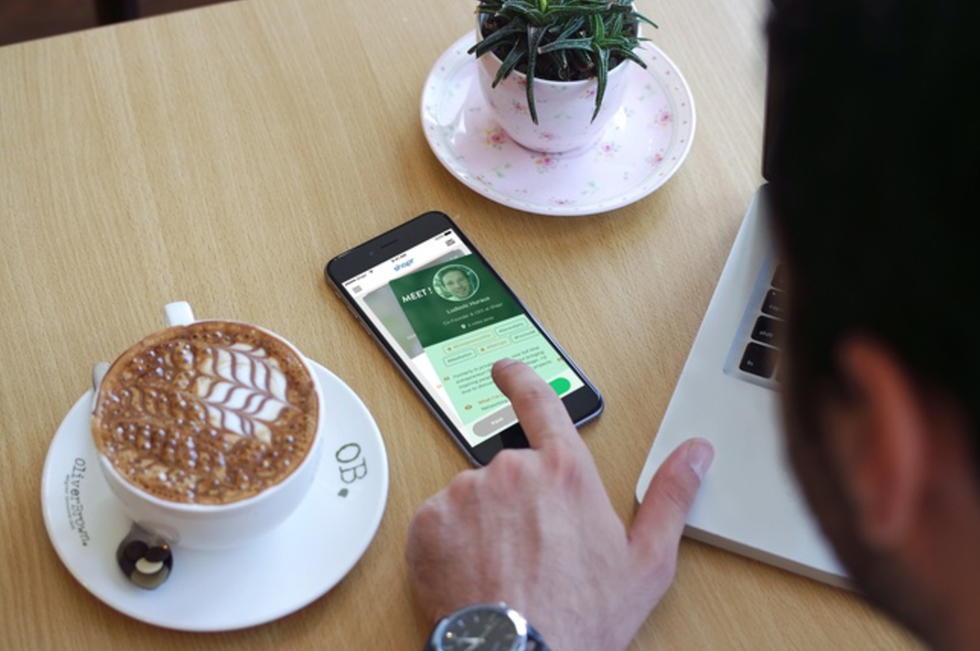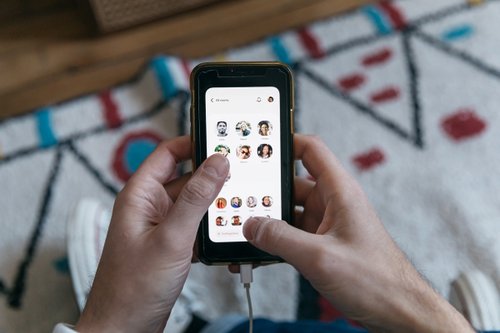How to network during a pandemic
Jun 11, 2020
6 mins


Journalist
Walking into a room of unfamiliar faces can be daunting, especially when you’re trying to make a good impression at a networking event. As large gatherings are off the agenda due to Covid-19 you might be breathing a sigh of relief, but networking hasn’t gone away. Instead, it’s moved online. Here we take a look at the new rules of networking during a pandemic.
The good news is networking has become gentler and more supportive, according to Adam Shaw of The Heart Guy, a health promoter and speaker. That’s because everyone has been affected one way or another by the pandemic. It was never wise to take a clinical approach to networking, but that is truer than ever now, said Shaw. “Don’t look on it as, ‘What’s in it for me?’ Consider how you can help—and not just in a professional sense. Show that you care. People are more sensitive to that now,” he said.
How important is networking?
Whether you are looking for new opportunities or hoping to boost your career, this might be just the ticket, according to Kingsley Aikins, chief executive of The Networking Institute. “Networking is more important than ever,” he said. “A lot of people will be looking for work and this can give you a competitive advantage. The key is to do it sensitively.”
Research conducted on LinkedIn, from 2016, indicated that 85% of its users had found jobs through networking. This makes sense because many people use LinkedIn as a recruitment resource. Real-world figures are likely to be lower.
Offline, there are more than 8,000 membership organizations and associations in the UK that have more than 1,000 members each. These range from professional associations to book clubs, so there are many ways to meet people. Katherine Baker and Anna Morrogh created one such association after meeting each other at a friend’s wedding. They set up a network dedicated to helping women to excel in their chosen careers. The result was Congress London, which gets together online now that physical meetings aren’t happening.
Since she moved to London from Paris in 2002, Flavilla Fongang has used the power of networking to become an award-winning brand strategist and run her own agency, 3 Colours Rule. Her go-to network is Tech London Advocates, which brings together those in the industry. Last year, she set up Black Women in Tech, an off-shoot. “I was always accustomed to being the only black woman in the room. This is about increasing diversity, whether that’s color, race, age, or ability,” said Fongang. “It can be hard when you are new to an area. Locals have their own networks from childhood. You don’t want to be too forward or you can make people uncomfortable. So this is a good way to meet different people.”
How has networking changed?
With the move online, location is no longer a barrier. Many groups, such as Congress London, send out weekly emails with tips and employment possibilities to members as far away as California. Baker said, “We just helped the partner of one member to find a social media freelancer for his office. We regularly send out calls like that. It’s all about helping each other out. People tend to get jobs through their connections’ connections, rather than their direct friends or colleagues.”
Virtual gatherings have made it all a lot more pleasant too, according to Fari Peyman, a Londoner with 30 years experience of in networking. “I love networking. It has helped me to get jobs for myself and for others,” said Peyman, who runs Notting Hill Web Design. “But those meetings were often held in crowded rooms after a long day at the office and, well, let’s just say some people’s hygiene was not great. You don’t have that problem online.”
The time saved not having to travel also means you can do more with your time. “You don’t have to waste half a day traveling to meet someone only to find you don’t click,” he said. “What took three hours before can be done in 10 minutes over Zoom. That’s how long it takes for me to know if I would want to get to know someone better—or not.”
What can you do to build your network during Covid?
Before even beginning, remember that if you act with sensitivity to the difficulties most people are having, your approach will probably be welcomed. The real goal of networking is to make a connection with like-minded people. The benefits come later.
Check out your online identity. The first step is to consider how people perceive you, says Aikins. “When your name is mentioned, what adjectives come to mind? Everyone has a personal brand, whether they like it or not,” he said. Baker, who works as a trainer and consultant, agrees that it’s important to keep your online profile up to date.
Audit your network. This is not the time to email the hairdresser you visited on a gap year in Boston, but do say hello to dormant connections in your field. Aikins said, “Ask yourself whether your network is good enough for where you want to be in three years.” If not, then identify who is missing and work out a sensitive way to get in touch. Rekindling connections with one to two people a month is a good start, according to Aikins.
Make it personal. When reaching out, don’t be afraid to mention the pandemic and the effect it may be having. Ask people how they are coping, how it is affecting them, and what challenges they are facing, said Shaw. “Take time to chat so as to put them at ease. Ask, ‘How has the crisis been affecting you? How are you getting on?’ In under 10 seconds, you can have a rapport. A little bit of empathy goes a long way,” he said.
Get comfortable with the technology. It doesn’t matter what platform you use—Zoom, Google Hangouts, or Skype—the important thing is to show up, according to Baker. “People are a lot more forgiving about technology now as so many of us are working from home. When things go wrong, I just remind them that we are all human.” “Looking into the camera when you are speaking online is good practice, but it doesn’t matter if you forget to do so or get confused about where to look,” said Shaw.
Realise that you have something to offer. Recognize that you have value and you just need to find those who want your help. Baker said, “It’s all about helping others. You need to be confident that you have the skills and knowledge that can help others. That was a mindset shift for me. It’s a two-way conversation.”
Talk to strangers. Your network should reflect the diversity of the economy you work in or want to work in, according to Aikins. “Connect with unlike-minded people, those who are different, are not from your field or your social circle,” he said. “Aim for diversity. Don’t worry if you struggle to talk to strangers. Introverts can be very good at connecting because they listen and ask questions.”
Be generous. Aikins likes to clip articles and send them to contacts who might find them interesting. “Always give something away, without looking for something in return,” he said. “When things come back, you will be remembered.”
Ask for help. An easy way to forge a connection and make the other person feel appreciated is to ask for help or advice, according to Baker. “This is always welcome. People love to be useful, whether that’s with practical stuff or with making an introduction.”
Set up a virtual coffee if you meet someone interesting at a webinar or on social media. This might sound odd, but people are doing everything from virtual bingo to wine tasting, so they are more open than ever to virtual contact. Keep it to 15 minutes for starters. Soon enough, a socially distant coffee will become acceptable again. “Ask them to connect. Have a conversation with five new people a week with no expectations,” said Fongang. “You never know where it might lead.”
Consistency pays off. The biggest mistake newcomers make is to give up when they don’t get results quickly. “I’m on Instagram, Twitter, LinkedIn and YouTube,” said Fongang. “Twitter is time-consuming, but it can bring opportunities. You need to be where your clients are. It’s so important to surround yourself with the right people.”
There really is no reason to forego networking, especially when so many are looking for work. How it operates has changed, but the human aspect remains the same, and showing a genuine interest in others will be appreciated. After Covid-19 has been dispatched, we will probably continue to do some networking online, though it won’t replace real-life interaction. “Human beings love to connect in person,” said Shaw. “People will be back soon and will appreciate that even more.”
Photo: Welcome to the Jungle
Follow Welcome to the Jungle on Facebook, LinkedIn, and Instagram, and subscribe to our newsletter to get our latest articles every day!

More inspiration: Build your network

Networking with social anxiety: 5 workers share their tips for dealing with it
For those with social anxiety, networking can feel impossible. See tips from real workers on how to step outside your comfort zone.
Feb 19, 2024

Should I share my life on social media? Our personal branding expert weighs in
In our Insta-globalized age, broadcasting your life online can land you a dream job — or land you in trouble...
Sep 07, 2023

How to get on the radar of people you admire
If you get yourself noticed by the right people and make a good impression, there’s a chance they will think of you when an opportunity opens up...
Mar 10, 2022

Inside Clubhouse: the invite-only app changing the way we network
This invite-only networking app has social media buzzing. So how does it work- and how can it help your career?
Mar 24, 2021

How real can we be on LinkedIn?
Photo dumps and live-streaming may encourage authenticity, but when it comes to professional networking, how much can we really share?
Dec 10, 2020
The newsletter that does the job
Want to keep up with the latest articles? Twice a week you can receive stories, jobs, and tips in your inbox.

Looking for your next job?
Over 200,000 people have found a job with Welcome to the Jungle.
Explore jobs